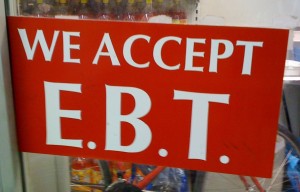Republicans ready to reform public assistance in Wisconsin

By M.D. Kittle | Wisconsin Reporter
MADISON, Wis. — Some of the boldest reforms to public assistance in the nation may arise from the Wisconsin Legislature in coming months.
Armed with the largest Assembly majority in 57 years and comfortable control of the state Senate, Republican leadership appears to be putting together the kind of ambitious reform agenda that could rival 2011, when the Republican-led majority introduced and passed a spate of conservative — and controversial — initiatives.
On Tuesday, Assembly Speaker Robin Vos, R-Rochester, announced the creation of the Public Benefit Reform Committee. While the new committee’s chair or its members have yet to be announced, Vos said the committee is a “reflection” of the Assembly’s priorities this session.
“Assembly Republicans also have a large number of entitlement reforms that we’d like to consider this session,” Vos said in a statement. “We need to weed out fraud, waste and abuse to ensure that people who really need temporary assistance are getting it.”
REFORM AGENDA: Wisconsin Republicans aim to use their strong majority in the Legislature to pass reforms to Wisconsin’s multi-billion dollar public assistance system.
The reform ideas being floated by the GOP have the left anxious about what’s to come in the new session, which begins next month.
Robert Kraig, executive director of the Milwaukee-based Citizen Action of Wisconsin, said he doesn’t want to jump to conclusions before he sees legislation, but he is concerned the reform train could turn into a Trojan horse for the poor.
“We do far too much stigmatizing and scapegoating of people in poverty without thinking about creating a situation where anyone who wants a job can get a job,” said Kraig, liberally borrowing from Republican Gov. Scott Walker’s mantra.
Citizen Action of Wisconsin bills itself as a coalition committed to “advance progressive values and shape the public and political debate around health care, economic development and consumer protection.”
But Republican lawmakers say Wisconsin’s public benefits system, from food stamps to taxpayer-subsidized health care, is in need of some fixes to “discourage dependency and fraudulent use while maintaining the flexibility to meet individual needs,” according to the newly released Assembly agenda.
FoodShare, Wisconsin’s food stamp program, BadgerCare, the state’s health care program for income-qualifying residents, and aid to social service organizations account for nearly a quarter of the state’s $70 billion, two-year budget, the agenda notes.
“Next session, Assembly Republicans will continue our work to ensure that all public assistance programs are being used in the way they were intended,” the document states.
Among the ideas:
- The junk food prohibition: Republicans appear ready to bring back a bill that would curtail purchases of chips, sodas and other such snack foods. The idea is to ensure those receiving food assistance are using it to buy nutritious food.
- Statement of benefits: One proposal includes sending all public assistance recipients an annual statement of benefits. Vos and state Rep. John Nygren, R-Marinette, assert the accountability measure would let beneficiaries know just how much taxpayer help they have received, itemizing costs and programs. Kraig called the idea “interesting,” aimed at the proposition that people are unaware of how many benefits they’re getting. “The Problem is, people (from all income levels) get benefits all the time that they are not really aware of,” the progressive activist said. He said such statements of benefits could equally go to homeowners writing off their mortgage taxes or companies pocketing taxpayer subsidies.“There should be some evenhandedness, not simply focusing on low-income folks,” Kraig said.
- One-stop benefit card: Another proposal would encourage all public benefit programs to be administered through one Electronic Benefits Transfer, or EBT, card system. Cards, according to the concept, could be programmed to automatically be declined at prohibited places, such as casinos, liquor stores or strip clubs. GOP lawmakers also are looking at putting a “reasonable limit” on the number of replacement cards someone can receive. A state audit two years ago tracked at least $324,000 in FoodShare purchases outside of Wisconsin. It’s a small portion of the $1.1 billion FoodShare program, but it appears there remains much more fraud and abuse that has gone undetected, officials say. The same audit noted that about 23 percent, or 107,000, of those who received FoodShare benefits were issued a replacement card in fiscal year 2010-11. Nearly 1,100 were issued more than four replacement cards in the year. “Based on the experience I’ve had with sheriffs and police officers who tell me the benefit card is sometimes being used as a trading commodity in exchange for drugs,” said Nygren, co-chair of the Legislature’s powerful Joint Finance Committee. “They sell the EBT card for cash and buy things they can’t buy with the card.” Multiple media reports have shown recipients “benefit trafficking” on social networks.
Nygren also would like to see a bill calling for mandatory photo IDs on EBT public benefit cards.
While some on the left have described such a proposal as marking the poor with a “scarlet letter” of shame, Nygren and fellow conservatives say identification is necessary to increase integrity in the program.
Perhaps the most talked-about proposal involves drug testing for public assistance beneficiaries, an idea found in Walker’s job creation plan unveiled earlier this year.
Kraig and other liberals see such ideas as being driven by politics more than the quest for good public policy, proposals that tend to “scapegoat low-income people” for an “immoral purpose.”
Nygren, who has witnessed the ravages of drug addiction first-hand, as his adult daughter continues to struggle with the demons of heroin and prescription drug abuse, said drug-testing beneficiaries is about accountability and responsibility.
“When someone fails a (drug) test we need to connect them with the (treatment) programs that will get their life back on track,” the lawmaker said. “The ultimate goal is to make these people a taxpayer rather than a drain on taxpayers.”







